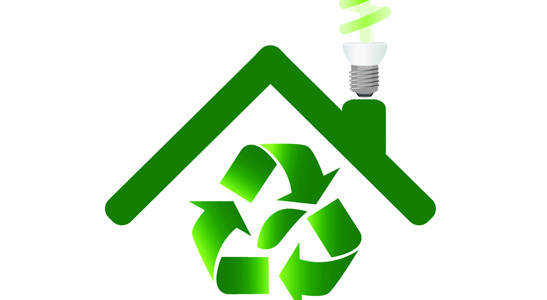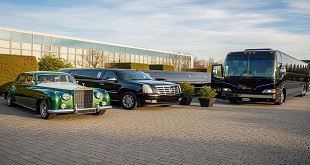Small businesses in the UK generally consume between 15,000 and 30,000 kWh of electricity per year, at an average annual cost of around £2,500, and between 15,000 and 30,000 kWh of gas at a cost of around £1,000 per year. While businesses pay lower rates per unit of energy than domestic customers, they face higher taxes on their energy consumption through the Climate Change Levy (CCL).
You can find significant savings if you compare business gas and electricity deals, shopping around for a cheap business energy deal. But you can save even more money by reducing your energy consumption. The political and economic situation may soon require it.
And as the world reckons with climate change, energy is likely to become more expense and subject to more taxation, including a possible tax on carbon. Many businesses are seeking to cut their energy consumption, both to see savings on their bottom line this year and to future proof their business against a changing climate and economy. And the government will reward you to do so. If you’re an energy intensive business and you reach a climate change agreement (CCA) with the Environment Agency, detailing how you’ll reduce your business’ energy consumption and carbon emissions, you can earn a discount of up to 90% on the main rate of CCL you pay for electricity and 65% for other fuels, including gas.
So how do you boost the energy efficiency of your company, to save both money and the environment? Read on for an introductory guide to being energy efficient.

- Install LED lighting—and turn off the lights
According to a 2016 survey from the Department for Business, Energy and Industrial Strategy, 17% of the energy used in non-domestic buildings is devoted to lighting. LED bulbs cost more than their incandescent counterparts but they last longer and consume 80% less energy, so you’ll see a return on the investment if you swap all the bulbs on your business premises. Reportedly, lighting costs for businesses, including energy and bulbs, can be cut by 80% with LED bulbs.
You can also find savings by simply switching off lights. If you can’t trust your employees to do so, invest in timers or motion-sensors to remove the human factor.
- Turn down the heat
Up to 40% of the energy used in non-domestic buildings goes toward heating. And many commercial premises are overheated due to poor control of heating systems. For every 1 degree Celsius your buildings are overheated, your heating costs will rise by 8%.
Office temperature can be controversial and you’ll always need to be mediating between employees who would prefer to work in the Arctic tundra rather than sales and those who don scarves and gloves in September. But turning down your office’s thermostats by just 1 degree Celsius can spell significant savings on your energy bills, and it won’t be noticeable to anyone but your most finicky staff and Karen should just wear a jumper anyways. Additionally, watch out for employees running portable heaters, which are energy intensive. Everyone has a right to a comfortable working environment but you can find solutions for your chilly staff, from re-arranging office plans to relaxing the dress code to allow for your warmer clothing, that don’t drive up your energy consumption.
Also check if your boiler is running efficiently, having an older one serviced or replaced. A poorly maintained boiler than inflate your heating costs by 30% or more. For further heating savings, install double-glazed windows, invest in new insulation, and identify and patch up draughts.
- Switch off computers overnight
When you and your staff clear out at quitting time your computers remain behind, quietly dozing but, if they’re not actually off, still burning through energy. A standard desktop uses 0.1 kWh while in standby, costing 1.4p an hour. That may not seem like a significant expense, but if you leave one computer on all night and over the weekends for a year, it’ll cost you £50. Multiply that by all the computers in your office and the costs could be significant. And then think about all the copiers and other office equipment you’ve left quietly drowsing. Simply encouraging staff to shut off devices can cut major kWh from your company’s energy consumption. Up to half of the energy consumed in a standard office is going toward computers and monitors and turning these devices off overnight and at the weekends can reduce their energy demand by up to 75%.
While you’re at it, you might want to consider switching your staff to laptops, which are more energy efficient than desktop computers, consuming up to 80% less electricity. As a bonus, they can be taken home, so you won’t have to worry about them as overnight electricity vampires in your office.
- Get a smart meter
The smart meter rollout will be offering free digitally-enabled next generation electricity and gas meters to all small businesses in the UK (those with fewer than 10 employees). These meters can provide you with real-time insight into your company’s energy consumption, seen in both kilowatt hours and sterling, helping you identify exactly where you’re using energy and where you can make savings. Increasing energy efficiency starts with knowledge.
 Entrepreneur Resources Your source for small business information
Entrepreneur Resources Your source for small business information





This is indeed helpful and relevant. This is must read of everyone. Thank you so much for sharing.
What is the best way to save energy at home?
Thanks for asking! There are several ways you can save energy at home, such as buying energy efficient appliances, installing energy efficient light bulbs and making sure to turn the lights out in rooms no one is using. You can also set the temperature in the house for a cooler temperature in the winter and a warmer temperature in the summer so that your heater/air conditioner aren’t constantly running. If you come across other tips, please post them here.
It was really interesting that you said by turning off machines when they aren’t in use it can help reduce energy demand by 75%. This would be really helpful for my Uncle Steve who just got his own building for his small business. It would also be really helpful if there was a company that he could hire to automate systems within the building like water and the ac.
Thanks for your comment!
What do you think of renewable energy?
LED light bulbs use up to 80% electricity than regular bulbs. Finally, think about installing sensors in places like storage space, bathrooms and break rooms. These sensors react to a person’s presence by turning the light on and then the light goes off after a certain amount of time.
I can see how it could be really useful for a business to make sure that they can save energy and save more money so that it can be put towards more important projects. Getting some help and make sure that their electrical design works better could be really useful. It was interesting to learn about how changes that seem small can build up and cause a big impact like turning the computers off overnight.
If you want to create the perfect atmosphere at home, fill the work area with energy, explore how colors enhance the environment, complement the decoration, or simply save energy. UFO LED high-bay lights are the perfect
Health is also an important thing we need to think about. CFL is economical, but not so healthy. LED is a better choice.
I see you recommend checking whether your boiler is running efficiently. That’s a very good point! I would also recommend paying attention to the fridge in the dining area and the air conditioners. Poorly maintained or old electrical appliances tend to consume more energy to function, making utility bills higher. As they may be a little expensive to replace and install, you should consider second-hand appliances with an Energy Star rating. This way you are saving money for your business and giving perfect good appliances a new life.